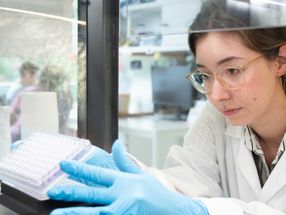Expiry of PCR Patent Offers Exciting Growth Opportunities for Nucleic Acid Purification and Amplification Technologies
The most widely used nucleic amplification technologies (NATs) are based on polymerase chain reaction (PCR), whose foundational patents expired in the US in March 2005. Patent expiry is expected to unlock considerable market opportunities. Smaller companies entering the lucrative clinical kits market may offer tests without developing a novel nucleic acid technology, which will normally require heavy R&D investment.
"PCR patent expiry would have a profound impact in the academic research kits market which is highly price sensitive. This segment will see enhanced competition from cheaper products," says Technical Insights Industry Analyst Mr. S. Ravi Shankar. "Patent expiry will, also, lead to a rise in competition to reduce the PCR reagent cost and instrumentation."
Despite the patent expiry that is likely to increase demand for NAT technology, the dampener lies in the persistent popularity of traditional nucleic acid separation methods such as plasmid isolation. Due to consumer indifference, less common nucleic acid isolation techniques such as genomic deoxyribonucleic acid (DNA) from fungi have experienced a lesser degree of commercial product penetration. Furthermore, as the number of organisms researched increases exponentially, manufacturers are not able to keep up with product line diversity, thus continuing the research community's reliance on traditional nucleic acid separation methods, such as phenol-chloroform extraction. Moreover, end users are skeptical about making capital investments in robotics.
Also, with funding resources becoming scarcer, researchers are looking for viable alternatives to meet their growing need for inexpensive sample preparation. Most automated sample preparation instrumentation products cost more than $70,000, inhibiting widespread adoption of this technology. Although most academic budgets can cover this cost, maintenance contracts and consumable/reagent costs also need to be considered.
For research programmes that only occasionally have large numbers of samples to process, the cost of labour regularly proves to be too low to justify the purchase of an instrument dedicated to sample preparation. To address the need for flexible solutions, many manufacturers are offering products that can also manage a number of liquid-handling tasks, such as aliquoting reagents and composing reaction mixtures.
Despite daunting challenges such as funding reallocation and popularity of plasmid isolation, the future of this technology is secure because of the intrinsic paradigm shift in research. As the scientific community transitions from sequencing to functional genomics, there will be a greater need for consistently pure nucleic acid samples, which will drive demand for automated instrumentation products.
Automated sample processing instrumentation is invaluable when handling a large number of samples, as exemplified by large-scale cloning and sequencing centres.
"Through the development of more sophisticated systems, the time currently spent on manual sample preparation and detection could be significantly reduced," explains Mr. Shankar. "A major trend in instrumentation systems is an increase in the number of manufacturers that are focusing on low-throughput isolation instrumentation."
Low-throughput products are ideal for clinical laboratories where space and time are limited, but quality is essential. In Europe, there is a move towards the smaller and medium throughput instruments. This is due to more European countries operating smaller and medium-sized laboratories, which do not process as large a number of samples as the United States.
The demand for nucleic acid-based amplification kits has boomed and is anticipated to continue over the next decade. This is mainly due to the completion of the human genome project and growing interest in molecular diagnostics. Fuelled by the rich rewards of possible patents, there has been a rush to analyse genes and their functions.
Among the amplification kits, all-in-one kits that reduce labour costs and molecular-based kits are more efficient than earlier technologies. All-in-one kits enable even regular laboratory technicians to carry out the experiments easily. Molecular kits also have emerged as highly attractive alternatives to serology- and immunology-based assays, due to their cost effectiveness.
Also, the need for quantitative assays due to Europe's increasing unmonitored population and EU's In Vitro Diagnostic Directive (IVDD) that requires approval will convince end users to favour commercial kits. Overall, NAT's cost and the expected shift from genomics to proteomics may restrain the market a bit but its multiple benefits of cost-effectiveness and reduction in time as well as external factors such as EU directives and PCR patent expiry are expected to hoist this technology to new heights.























































